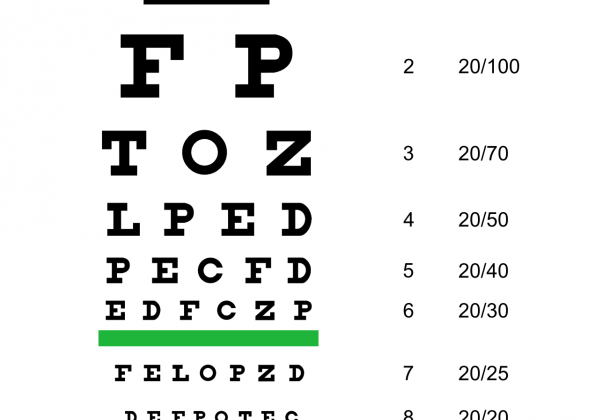Start Early to Protect Your Vision Health

Eyesight is so often something we take for granted, says Dr. Mark Whitten. “We take our youngsters to pediatricians and dentists, but all too often they don’t meet an eye doctor until a problem with their vision is suspected: fatigue, headaches, or poor performance in school because instructional materials are hard to see.”
The wait can be avoided, Dr. Mark Whitten says, with early evaluations by an ophthalmologist and regular eye care throughout your children’s lives. So if you’re proactive with your kids’ vision care, good for you! But are you taking care of your eyes as well?
If you’ve neglected this part of your health care, it’s not too late to hit the reset button. And there’s a compelling reason to start: By age 65, one in three Americans will have a vision-impairing eye disease, says the American Academy of Ophthalmology (AAO).
Adults from 40-60 will begin to notice changes somewhere along this age spectrum, according to the AAO. Nearly everyone will experience presbyopia beginning in their late-30s to mid-40s. The eye’s lens (located behind the pupil) becomes less flexible, making it harder to read and perform other “near” tasks. One indicator of presbyopia is difficulty finding the right distance at which to hold reading materials so you can see them clearly. The AAO warns that untreated presbyopia can cause eye fatigue and headaches. Most people need reading glasses or another vision correction strategy to deal with presbyopia.
Early signs of age-related eye diseases, including cataract, glaucoma, diabetic retinopathy and age-related macular degeneration, can begin in midlife but often don’t noticeably affect the vision until later, the AAO says. For this reason, the AAO urges adults to get a baseline comprehensive eye exam at age 40, even people without symptoms and no known risk factors. Patients who are diabetic need to be extra vigilant. Your ophthalmologist will recommend a schedule of follow-up exams based on your family history and the results of the baseline exam.
If you’ve worn glasses or contact lenses to correct nearsightedness, farsightedness, and/or astigmatism, LASIK can be liberating, explains Dr. Mark Whitten. LASIK is the most common form of refractive surgery, in which a laser is used to re-shape the cornea. Though you may still need glasses for reading or other close work, LASIK can free you from dependence on corrective lenses for most other circumstances. You can read the AAO’s guide to LASIK surgery here.
Your ophthalmologist is a crucial partner in protecting your vision health. Dr. Mark Whitten is a board-certified ophthalmologist who has practiced for more than 30 years in the Washington, Richmond and Southern Maryland areas. Dr. Mark Whitten has performed more than 130,000 LASIK procedures. For information or to make an appointment for a comprehensive eye exam or a LASIK consultation, contact Whitten Laser Eye.























